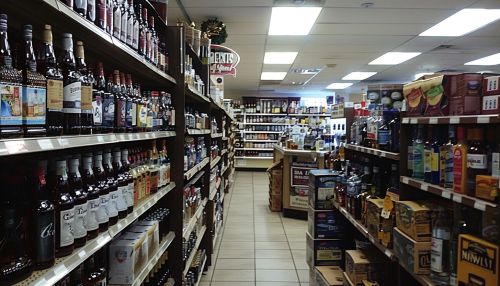Alcohol law
Overview
Alcohol law refers to the legal regulations governing the sale, consumption, and production of alcoholic beverages. These laws vary significantly from one jurisdiction to another, with legislation ranging from relatively liberal policies in some countries to complete prohibition in others. The purpose of alcohol laws is primarily to protect the health and safety of individuals and the community at large.


History
The history of alcohol laws dates back to ancient times. The first known laws against alcohol consumption were enacted in the ancient Near East around 2200 BC. These laws were primarily concerned with maintaining social order and preventing public drunkenness. Over time, various societies have implemented different types of alcohol laws, reflecting cultural, religious, and political influences.
Types of Alcohol Laws
There are several types of alcohol laws, including those that regulate:
Age Restrictions
The legal drinking age is the age at which a person can legally consume or purchase alcoholic beverages. This age varies from country to country and sometimes within countries, with most ages ranging from 16 to 25 years.
Licensing and Sale
Most jurisdictions require businesses to obtain a license to sell alcohol. This includes bars, restaurants, and retail stores. Some jurisdictions also regulate the hours during which alcohol can be sold and the types of alcoholic beverages that can be sold.
Production
Laws also regulate the production of alcohol, including the types of ingredients that can be used, the methods of production, and the labeling of alcoholic beverages.
Consumption
In some jurisdictions, there are laws that regulate where alcohol can be consumed. For instance, in many places, it is illegal to consume alcohol in public places. There are also laws that prohibit operating a motor vehicle while under the influence of alcohol.
Alcohol Laws by Country
Alcohol laws vary widely by country, reflecting cultural, religious, and legal differences.
United States
In the United States, the legal drinking age is 21, and all states have laws prohibiting the operation of a motor vehicle while under the influence of alcohol. States also regulate the sale and distribution of alcohol, with some states operating state-owned liquor stores.
United Kingdom
In the United Kingdom, the legal drinking age is 18, although it is legal for a person aged 5 or older to consume alcohol in private. The UK also has strict laws regarding drunk driving and public drunkenness.
Saudi Arabia
In Saudi Arabia, the production, sale, and consumption of alcohol are strictly prohibited due to religious laws.
Effects of Alcohol Laws
Alcohol laws can have a variety of effects on society, including influencing drinking behaviors, reducing alcohol-related harm, and impacting the alcohol industry.
Drinking Behaviors
Alcohol laws, particularly those related to the legal drinking age and the availability of alcohol, can influence drinking behaviors. For example, research has shown that a higher legal drinking age can lead to lower rates of alcohol consumption among young people.
Alcohol-Related Harm
Alcohol laws can also help to reduce alcohol-related harm, such as alcohol-related violence, alcohol poisoning, and alcohol-related traffic accidents. For instance, laws that regulate the hours of alcohol sale have been shown to reduce rates of alcohol-related harm.
Alcohol Industry
Alcohol laws can also impact the alcohol industry, influencing the production, distribution, and sale of alcoholic beverages. For instance, laws that regulate the types of alcohol that can be sold can influence the types of products that are produced by the alcohol industry.
